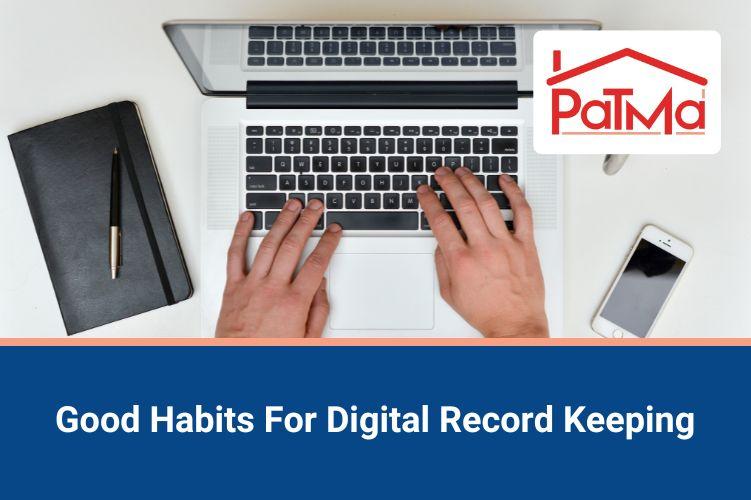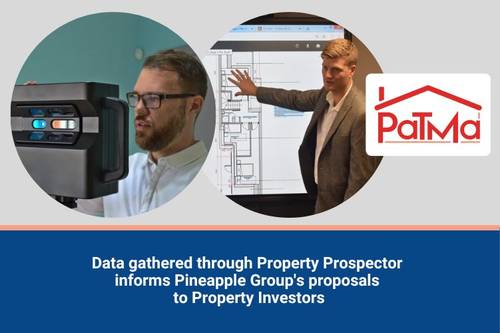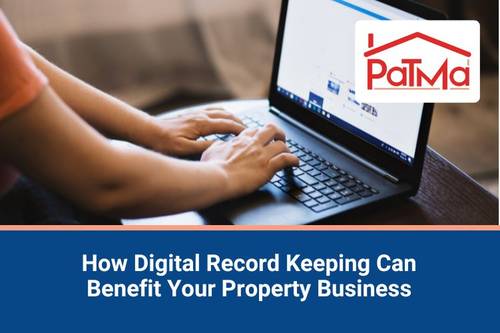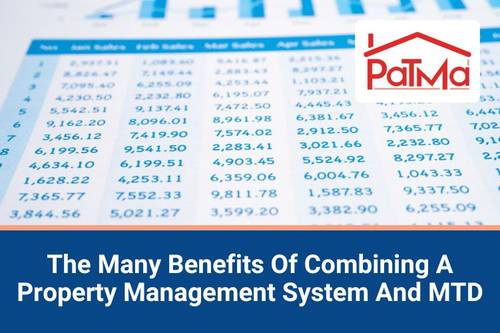If you’re moving your business to digital record keeping, perhaps in preparation for Making Tax Digital, then it’s a good idea to develop some good digital record keeping habits.
Why should you keep your records digitally?
Going digital is about more than just saving paper. It is about collecting data effectively and using it to run your business better.
There are many benefits of keeping digital records: Digital record keeping makes you more efficient and more productive. It makes running your business easier and saves you time and money. Ultimately it can help make your property business much more profitable.
How Digital Record Keeping Can Benefit Your Business
Digital record keeping will soon no longer be just an option. HMRC’s Making Tax Digital for Income Tax Self Assessment (MTD ITSA) programme will be mandatory for most people using self assessment from April 2024. (You can opt to start using MTD before that if you wish to.)
What Is Making Tax Digital and What Does It Mean For Landlords? Property and Tenant Manager Blog
So, it’s a very good idea to begin developing some good habits for digital record keeping as soon as you can.
Good practices when keeping records in digital form
Firstly, bear in mind that keeping records digitally is a complete shift change. It involves much more than simply moving over from manual records.
-
Get everything up to date within your existing records system, if you’re not already using a digital system. Resolve any outstanding accounting issues.
Decide on a changeover date. The end of your financial year is the optimum time. You can transfer balances over to your digital system at that point.
-
Ensure that you are collecting all the information you need, and check that it is correct.
For example: Tenant names, personal information and contact details. Supplier names and contact details and other information such as bank details and VAT numbers. Type of expense, ie. whether a capital expense or an allowable expense. Mortgage details, eg. balances, monthly payments and interest rates.
Also, check that you aren’t collecting data you don’t actually need and aren’t keeping records you no longer need.
-
Aim to move away from paper and stop using it if possible. Aim to issue and receive invoices and receipts in digital form only if you can.
It is perfectly possible to keep using paper invoices and receipts with a digital system. You can enter the figures into your system from paper and then either keep the paper records or scan and attach to your digital records. However, if you can go paperless you will reap more benefits from a digital system.
-
Don’t run multiple record systems! It’s not a good idea to have a paper record system, not even as a backup, and a digital record system running in parallel. Nor two digital systems which feed into each other. It duplicates work and can lead to discrepancies which are hard to resolve.
Be aware that under Making Tax Digital rules you shouldn’t have two or more systems of keeping financial records and transfer information between them manually. Data should only be entered into digital records once and then stay within that system so that it can always be traced back to the original transaction.
-
Consider whether spreadsheets are the best option for digital record keeping. Spreadsheets have been popular for many years and are a way of working digitally to some extent. But, today, they are quite a dated form of digital technology and also very limited in the functionality they offer.
It may be possible to use spreadsheets with Making Tax Digital together with suitable bridging software to link the two. However using dedicated MTD-compatible record keeping software will be simpler and provide other benefits.
-
Set up a system for updating your records regularly. Currently you might be in the habit of updating your accounts only ‘now and then’. Or even leaving it until the end of the financial year or tax year. This kind of approach won’t be possible alongside Making Tax Digital as you will need to submit quarterly periodic updates.
It is a good idea to set up a regular system now. Quarterly or monthly updating is best. Or even more often if you wish. The more often you update the more accurate a snapshot you can get of your financial situation at any one time.
-
Keep your digital records secure. Know who has access to your records. Don’t share them with someone who has no reason to have that information, even inadvertently. Make sure your data is secure so it can’t be accessed by anyone else.
Know and understand the data protection implications of keeping digital records:
What Are A Landlord’s Data Protection Responsibilities? Property and Tenant Manager Blog
-
Back everything up. Ensure that you back up your records regularly. Use a reliable method. This could be either on your own device or in the cloud or both. Remember that once lost, digital records are difficult and maybe even impossible to retrieve.
-
Choose the right software for keeping digital records. Good software can help you maintain good record keeping practice and offers many more benefits besides.
PaTMa Property Manager is digital record keeping software that is specifically designed for the property business. It is a powerful way to collect, record and benefit from the data in your property business.
You can find out more about PaTMa Property Manager here.
Key points
-
Get your existing records in order.
-
Dispense with paper if you can.
-
Have one digital system only.
-
Update your digital records regularly.
-
Back everything up.




